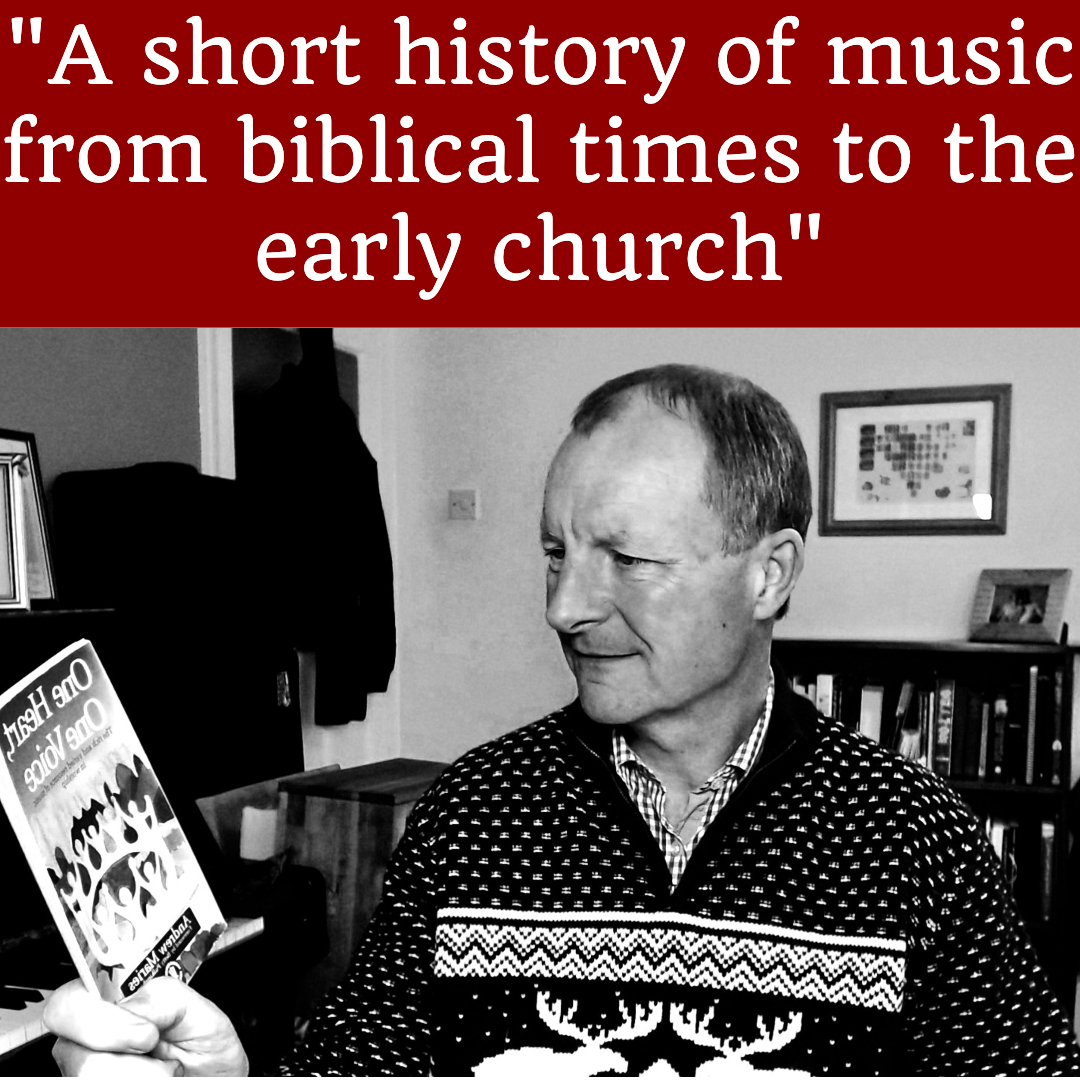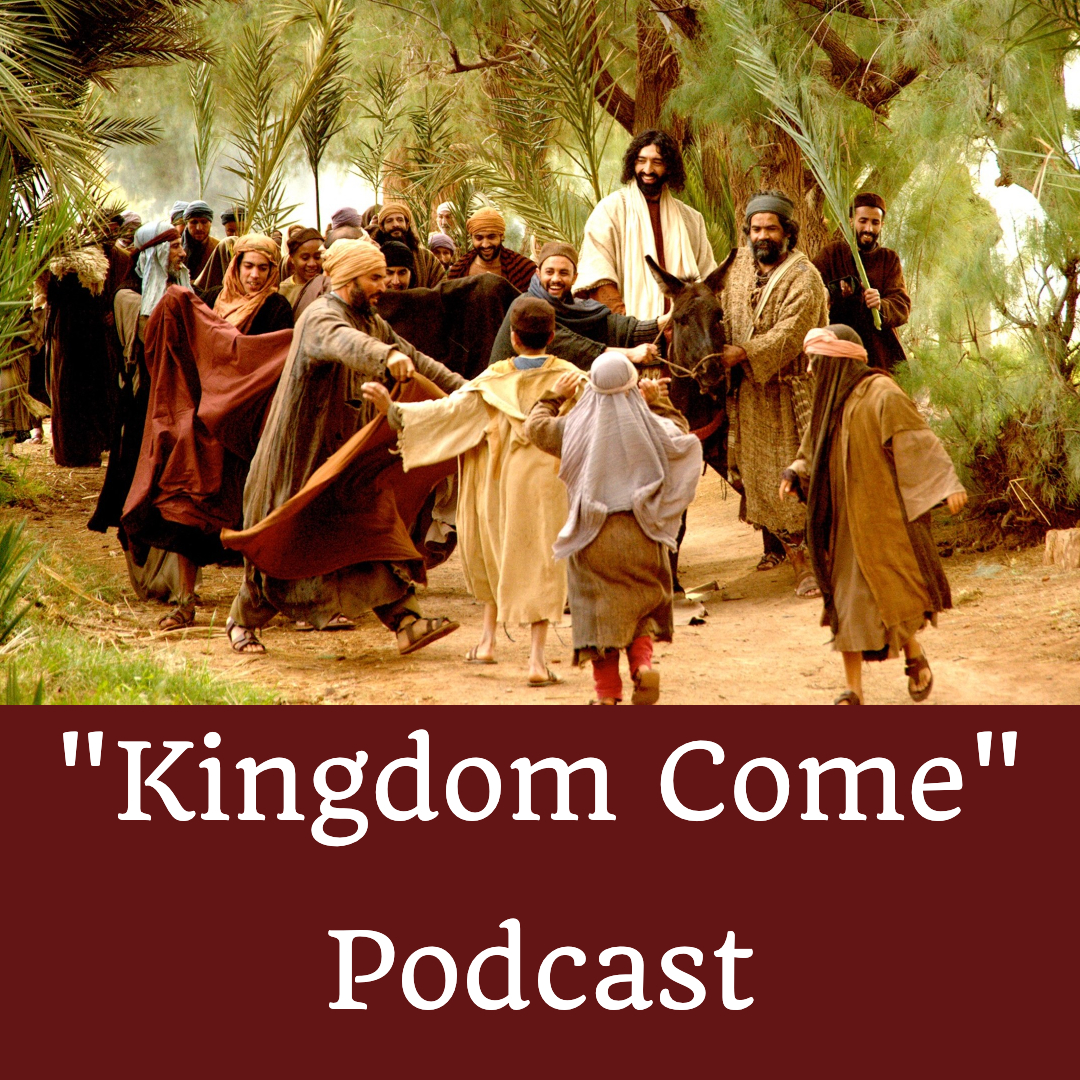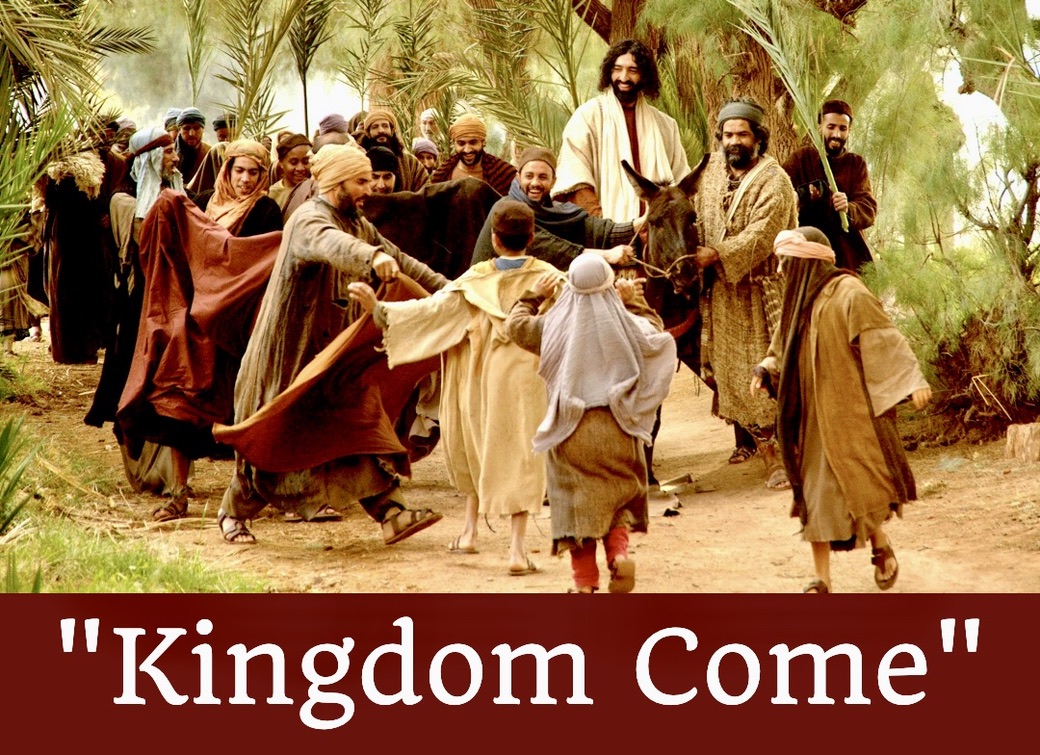The Sunday Sample, Episode 120
Most Sunday Samples are about practicalities blended with theology. This time, something different. A trip into history.
I’ve been dipping in and out of a book called “One heart, One voice” by Andrew Maries. Today let’s have a look at some of the things he shares about the history of God’s people in musical worship. This week we will focus on the Old Testament. Next time we will move on to the New Testament and the early church.
- Collective Worship
In what we call the Old Testament music was central to collective worship and everyday life. It was part of the atmosphere. National events were celebrated with music (Exodus 15; 1 Chronicles 15-16). It was integral to military action (Joshua 6:20; 2 Chronicles 20:21). The Psalms show us that music was part of collective worship, focused on the temple.
2. Life Worship
But it was also part of everyday life.
“People sing for great joy and thanksgiving such as Hannah (1 Samuel 2) and Mary (Luke 1:46-55); or out of the deep grief of David’s lament for the death of Jonathan (2 Samuel 1). Music was used in sacred and secular feasts (Isaiah 5:12), social events (mentioned at the return of the prodigal son in Luke 15:25), in work songs as people harvested the crops (Isaiah 16:10), and in the expression of love (Song of songs).” Page 18
3. Style
We don’t know much about the style of music in that period. Most likely it would be similar to ancient folk music which survives today. Harmony would be uncommon, with unison the normal mode of singing and performing. It may well be that it would sound as strange to Western ears as traditional music of the Far East would be for us today.
“Imagine, for instance, the effect of 120 trumpet-playing priests sounding for the daily dedication of the temple in Jerusalem! (2 Chronicles 5). Even the worst school band could hardly have competed with such a sound!” Page 19
4. Instruments
Psalm 150 gives us some idea of the instruments used in that time:
“…..Praise him with the sounding of the trumpet, praise him with the harp and lyre, praise him with timbrel and dancing, praise him with the strings and pipe, praise him with the clash of cymbals, praise him with resounding cymbals. Let everything that has breath praise the LORD.” (Psalm 150:1–6 NIV11)
Here we find a mix of stringed, wind and percussion instruments. For further examples see Genesis 4:21, 1 Samuel 16:23; 1 Samuel 10:5; Daniel 3:5 (stringed); Isaiah 30:29; 1 Kings 1:40; Matthew 9:23; Jeremiah 48:36; Genesis 4:21; Daniel 3:7; Numbers 10:1-10 (wind); Exodus 28:35; Exodus 15:20; Isaiah 5:6; 1 Samuel 18:6 (percussion).
5. Resources
David got things more organised. In 1 Chronicles 15.25 we get a glimpse into his prioritising of musical worship. He chose 288 skilful musicians to conduct the religious ceremonies along with the priests. This is a huge investment in manpower and resources (See 1 Chronicle 16:41).
6. Spontaneity
It does not seem David felt there was any contradiction between the more formal worship and the less formal. Temple worship required more careful organisational preparation, but this went
“hand in hand with the spontaneous activity of God. For some people today the two are quite irreconcilable.” Page 21
When the Ark was brought into the temple there was not a great deal of formality involved!
“The beauty of this Old Testament example is that people were able to accept a regular routine expression for their worship, almost as a discipline, while remaining open to change and ready to adapt to a God of power and movement.” Page 23
7. Words
Three main words are used for praise: halal; zamar; yada. I have recorded on these in earlier podcasts.
Suffice it to say for today that halal is primarily making a noise for God (Habakkuk 3:3; Psalm 35:28; 66:1-2). Zamar is primarily connected with singing or playing music (Psalm 18:49; 147:1, 7; 108:1-3; 47:6-9. Yada is more connected with moving the body (Psalm 63:3-4; 134:2; 2 Chronicles 7:3; Psalm 138:1-2; Psalm 47:1; 149:3; 33:1-3.
“While we suffer from ecclesiastical rigorous mortis, the ancient worshipper knew no self-consciousness in his relationship to God. Praise could frequently be extremely exuberant!” Page 25
Some lessons for us today, having reviewed the evidence for Old Testament collective musical worship.
- The formal nature of some of the worship was not a barrier to joyful expression.
- The nature and practice of collective worship developed over time.
- Instruments were used for dramatic effect to enhance the worship experience.
- Musical worship blended the formal and the spontaneous.
- Songs were written in response to national, collective spiritual and personal events.
- We know little about the style or genre of music. Since this was not recorded, God does not think it significant. We have an invitation to be creative.
Which of the above points speaks to you? Pray through each of these six points asking God to reveal to you which one might be most relevant in your context.
Perhaps your use of instruments is more passive than it could be. Or, perhaps the balance of the formal and spontaneous isn’t serving the congregation at the moment. Maybe you feel led to write a new song about national, collective spiritual or personal events. Although again, perhaps you feel you’ve got a bit stuck in a rut regarding the genres of music you using collective worship.
Whatever the detail, God will help you to see what it is he would like you to learn from this brief survey of music in the Old Testament.
Question for today: “What aspect of collective musical worship in the Old Testament is most helpful for you in leading corporate worship today?”
Please add your comments on this week’s topic. We learn best when we learn in community.
Do you have a question about teaching the Bible? Is it theological, technical, practical? Send me your questions or suggestions. Here’s the email: malcolm@malcolmcox.org.
If you’d like a copy of my free eBook on spiritual disciplines, “How God grows His people”, sign up at my website: http://www.malcolmcox.org.
Please pass the link on, subscribe, leave a review.
“Worship the LORD with gladness; come before him with joyful songs.” (Psalms 100:2 NIV11)
God bless, Malcolm
PS: You might also be interested in my book: “An elephant’s swimming pool”, a devotional look at the Gospel of John


